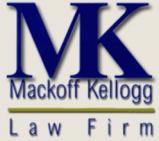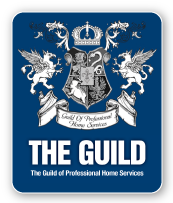

- Real Estate
- Commercial Transactions
- Estate Planning & Probate
- Taxation
- Mortgage Default Servicing
- Corporations/Partnerships/Limited Liability Companies
Overview:
Mackoff Kellogg Law Firm is the oldest law firm in western North Dakota and eastern Montana. It provides regional representation throughout North Dakota, South Dakota and Montana. As the Mackoff Kellogg Law Firm continues to grow, the focus of the firm remains on our core values of Integrity, Trust, Respect and Results for the community, our clients, the courts and our families.
Mackoff Kellogg remains connected with current legal developments around the country through membership with United States Foreclosure Network and the American Foreclosure Network, the only law firm in North Dakota and South Dakota accepted as members to these prestigious organizations. The lawyers in the firm are also active in state and national professional associations specific to the areas of law in which they practice.
Mackoff Kellogg aggressively pursues the rights of its clients while remaining conscious of the costs in doing so. It currently has a total of 40 employees to better provide service to our clients. Our lawyers actively practice in the state and federal courts in which they are licensed. The firm's clients range from sole proprietorships and individuals to manufacturers, insurance companies, government entities, construction industry, national mortgage companies, national and local financial institutions and non-profit organizations.
CORNERSTONE VALUES:
The lawyers at Mackoff Kellogg Law Firm today continue to be guided by the same fundamental values which have guided the lawyers in our firm for over a century. They are the cornerstones of the way we practice law.
Integrity, as a firm and individually, in dealings with our clients, the courts, and our adversaries.
Trust must be earned and not just promised. We continually strive to earn and maintain our clients’ trust by providing honest, straight-forward legal advice.
Respect is a prerequisite to providing effective legal representation—respect for the legal system, mutual respect of and for judges and other lawyers, and most important, a lawyer’s respect for their clients. We realize that and it is a part of our daily practice.
Results matter. Each of our clients, no matter how large or small, can be assured that we are committed to obtaining a successful result with a level of effort which separates us from other law firms.
Technology:
Technology is continually changing, allowing for faster access to more information. Mackoff Kellogg Law Firm is committed to using the most up-to-date technology in innovative and cost-effective ways to better serve our clients.
In today’s world, access to current technology is needed to provide quality legal representation. It is necessary to effectively practice in many courts, and demanded by an ever-increasing number of our clients. Each of our lawyers and support staff are connected by high-speed access to the World Wide Web and electronic mail to facilitate communications with clients from anywhere, at any time. We subscribe to on-line legal research services which provide access to an endless source of laws and legal authorities. Our technology allows for an easy real time electronic exchange of documentation between us and our clients.
Mackoff Kellogg Law Firm will remain current with technological innovations to respond to the needs of our clients and to provide for the most effective delivery of legal services.
MK History:
2014 marked the 125th anniversary of the founding of Mackoff Kellogg Law Firm. The firm has grown from the solo, pioneer practice of lawyer Leslie A. Simpson to fifty employees serving clients throughout the Upper Midwest. It is the oldest law firm in western North Dakota and eastern Montana.
In mid October 1889, two weeks before North Dakota statehood, Leslie Simpson stepped off a train from Minneapolis and decided that he liked what he saw. He rented an office above the First National Bank building on Dickinson’s Main Street and threw himself into the formation of the new state as well as his law practice.
These were turbulent times in North Dakota, but Simpson never shied away from controversy or a fight. While conducting a rough and tumble frontier law practice, he jumped into the middle of equally tough political battles. Four years after his arrival, he was elected to the North Dakota House of Representatives. He served 4 years in the House. The citizens of Stark County next elected Simpson to the North Dakota Senate. He continued to serve as a State Senator until 1912. He was elected president pro-tem of the Senate in 1909. Simpson was considered a strong friend and fierce opponent in those steamy political times.
In that same year, the North Dakota lawyer made national newspaper headlines, as the lawyer for “Dakota Dan,” a rancher from Dickinson who claimed to be Daniel Blake Russell, the long-lost youngest son of deceased Massachusetts State Senator, Daniel Russell. Daniel Blake Russell had been missing for more than 25 years. Whoever could prove to be Daniel Blake Russell would be heir (along with an older brother, William) to Senator Russell’s large fortune. The prize, estimated to be worth between $500,000 and $700,000 in 1910, would be equal to $9 million to $13 million today.
The trial began in Boston, Massachusetts on September 20, 1909. Simpson was described at various times by the Boston Globe and the Boston Post as having “a sweet, musical voice, a very pleasant and agreeable smile and a most winning and agreeable personality.” During the trial, opposing counsel, Robert W. Nason, admitted that Simpson was “as keen a lawyer as I have ever met….” The newspaper accounts of the trial also referred to the small, bronze button that Leslie Simpson always wore. President Roosevelt had given it to Simpson to commemorate Simpson’s service as a Roughrider during the Spanish American War.
After nearly seven months of legal wrangling before Judge George F. Lawton, the case, which the Boston Post called “the longest…on record in the world” ended on April 11, 1910. Unfortunately, Simpson was unable to convince Judge Lawton of the Dickinson man’s claim and was unable to convince William Russell that “Dakota Dan” was, in fact, his brother. Judge Lawton declared a second man, “Fresno Dan,” from Fresno, California, to be the real Daniel Blake Russell. After hearing Judge Lawton’s ruling, William Russell accepted “Fresno Dan” as his brother.
As the news of his defeat spread, Simpson received telegrams from across the state. One, signed by bank presidents, churchmen, city, county and federal officials, and other prominent residents said: “Over 20,000 friends . . . believe you are right and are with you to the last ditch in the fortunes of the battle: past, present and future. You have our deepest confidence. Fight on, for those who know you best bank on you.” After hearing these messages Simpson is quoted in the Boston Globe as saying: “I would rather have (these telegrams and friends) than a verdict of any court, for they are heart-to-heart….” In spite of the outpouring of support, Simpson’s appeal to the Massachusetts Supreme Court was unsuccessful.
In 1917, the firm name changed to Simpson and Mackoff when H. A. Mackoff became a partner. Herbert A. Mackoff was born in Russia in 1888 and came to this country in 1900, eventually coming to North Dakota in 1908 as a homesteader. He attended the University of North Dakota’s law school, graduating in 1912. Mackoff set up his first law office among Ukrainian and Russian immigrants who had settled in Belfield. Five years later he moved to Dickinson to join Simpson.
After arriving in Dickinson, Mackoff became very active in civic affairs. He and his wife were also prominent members of the early Jewish community on the plains. They erected the first synagogue in Dickinson, and they became leaders among a far-flung community of believers across the mid-west. So deep was their commitment to their faith that the North Dakota pylon of the John F. Kennedy Memorial in Israel, one of fifty pylons forming the Jewish national monument to the slain President, is named in memory of the H. A. Mackoff family.
Theodore C. Kellogg originally from Schafer in McKenzie County, came to Dickinson in 1932 to join the firm after a year of practicing law in Grand Forks. Leslie Simpson had died so, after Kellogg’s arrival, the firm’s name became Mackoff and Kellogg.
In the fall of 1932, Kellogg ran successfully for the office of state’s attorney for Stark County. In 1934, during his first term, Kellogg, an eager and accomplished orator, represented the people in prosecuting Gladys R. Gibson. The case was so unusual and emotionally charged that, if presented today, it would certainly make tabloid headlines.
Nathaniel Gibson was found dead at his home. Death was caused by a gunshot to the head. He was an apparent suicide. But suspicion mounted that Mrs. Gladys Gibson had actually staged her husband’s murder to look like suicide. Kellogg hired a detective to rent rooms in the Gibson’s home. It is said that, on a date with the undercover agent, Gladys Gibson admitted the killing, claiming that it was done to protect her daughter from her dead husband. When local opinion reached fever pitch, the case was moved to Bismarck, where after a lengthy and often emotional trial, Mrs. Gibson was found guilty of second-degree murder.
Civically, Mackoff and Kellogg worked closely with area farmers and ranchers in the 1930’s and 1940’s to obtain electric service for rural areas of southwestern North Dakota, as well as in the formation of grazing associations. Kellogg ramrodded enactment of North Dakota’s first grazing association laws and later helped organize the Medora, Little Missouri, and McKenzie County Grazing Associations. The associations have been mainstays of the ranching industry in these areas, and have been vital to the reclamation, continuing conservation, and improvement of thousands of acres of previously ‘sub-marginal’ lands. Mackoff also worked on the organization of some of the first electric service cooperatives in the state.
In 1946, Norbert J. Muggli joined the firm, changing the Firm’s name to Mackoff, Kellogg and Muggli. Five years later Ward M. Kirby’s arrival resulted in the Firm being known as Mackoff, Kellogg, Muggli and Kirby. It remained so until Muggli became district judge in 1965. By then, Paul G. Kloster had been with the firm for 6 years. When the firm incorporated, its name was changed to Mackoff, Kellogg, Kirby & Kloster, P. C. Muggli retired as district judge in 1981 and died in 1998. Kirby, who remained with the firm until his retirement in 1989, passed away in 1993. In 1998 the firm licensed its present name: Mackoff Kellogg Law Firm.
The practices and traditions of the firm have run deep. The current members of the firm, following in the footsteps of their predecessors are actively involved in improving the state, the legal system, and the profession of the law. Uniquely, the namesakes of the firm, H.A. Mackoff, Theodore C. Kellogg, Ward M. Kirby, and Paul G. Kloster have all been elected (and, in that order) by their fellow lawyers to serve as president of the State Bar Association of North Dakota.
From the frontier past of Leslie A. Simpson to the dawning of the 21st century, the lawyers of Mackoff Kellogg Law Firm look back with pride on their 125-years’ association with the people and communities of western North Dakota and eastern Montana, and look forward to carrying on the traditions of service to our clients.
 home
home
 contact
contact
 Dickinson Homemove
Dickinson Homemove


